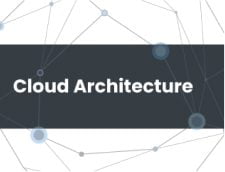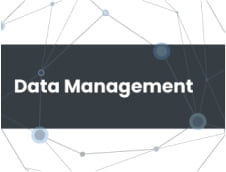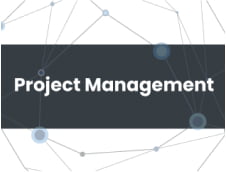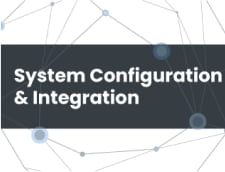
Extraordinary Results
Managing Quality for North America’s Largest Infrastructure Project
Now more than ever, the government is being held to a higher quality standard on critical items such as civilian programs and internal operations. This is a good thing because standards make organizations more efficient and productive. However, how does an organization not only define quality standards but also measure adherence to these standards?
The International Organization of Standardization 9001 (ISO 9001:2015) Quality Management System Standard and Certification provides an answer to questions like this. The ISO 9001 Standard establishes a quality benchmark for organizations and demonstrates its ability to meet the expectations of citizens and other stakeholders.
Why ISO 9001?
Quality Standards are designed to optimize superior return on investment (ROI) for the stakeholders of an organization. They are also important to the leadership and staff that manage quality by:
- Establishing strong a Quality Management System (QMS)
- Enabling data-driven decision-making
- Motivating staff (including a good working environment)
- Creating a culture of continuous improvement
- Establishing a clear understanding of expectations
- Gathering insights from staff and stakeholders
- Organizing processes
- Facilitating knowledge transfer
- Improving customer satisfaction
- Providing maximum value
- Managing organizational risks and opportunities
Earn an ISO Certification with Capio Group
Capio Group has applied ISO Standards for numerous clients and several ISO certification types including 9001 and 45001. Our team was hired by the California High Speed Rail Authority (HSR) to successfully implement its ISO 9001 certification process. Capio Group met HSR’s goal, completing the implementation within five (5) months. In addition, our team was utilized by another functional area, the Health & Safety department, to manage a new certification process to achieve an ISO 45001:2018 Occupational Health and Safety Management Systems Certification.
So, how are ISO Standards set? All the requirements of ISO 9001/ 45001 are non-specific and intended to be applicable to any organization, regardless of its type, size, or the products and services it provides. Capio Group’s approach is to evaluate and create Standards that build around the following seven (7) best practices:
- Client Focus
- Leadership
- Engagement of People
- Process Approach
- Improvement
- Evidence-based Decision Making
- Relationship Management
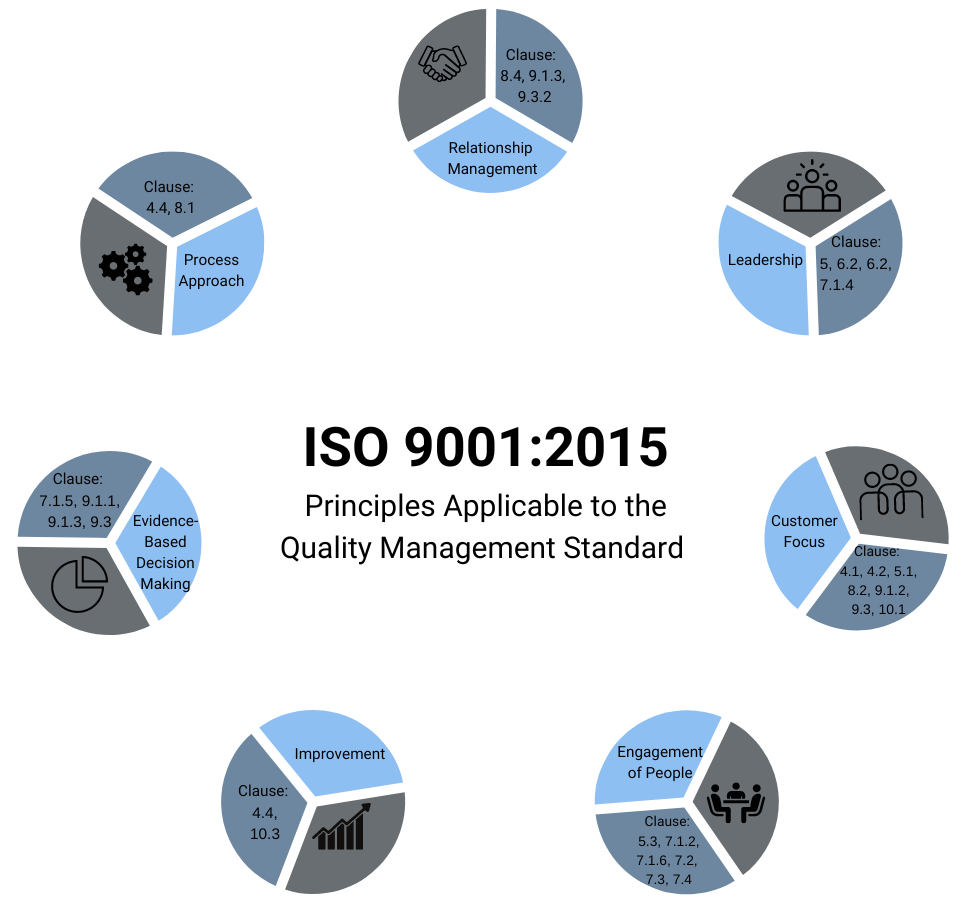
Regardless of ISO certification type, Capio Group’s work includes:
- Developing key processes
- Holding formal meetings with Stakeholders to build rapport and review objectives
- Performing Gap Analysis for Quality / Health and Safety
- Developing training materials and facilitating training
- Creating objectives for ISO 9001/ 45001
- Establishing processes to identify and manage Risks and Opportunities
- Designing templates and policies/procedures/processes/etc.
- Buildout of the Quality Management System and Health and Safety Management System
- Facilitation of weekly meetings for Stakeholder(s) and teams to manage the implementation workflow timeline (tasks, assignments, etc.)
- Scheduling, and facilitating internal audits
- Carrying out management review meeting
- Managing relationships and providing support to external auditors
- Creating and provide a corrective action plan for all non-conformities identified
Specifically for ISO 9001, the following characteristics need to be achieved by the QMS:
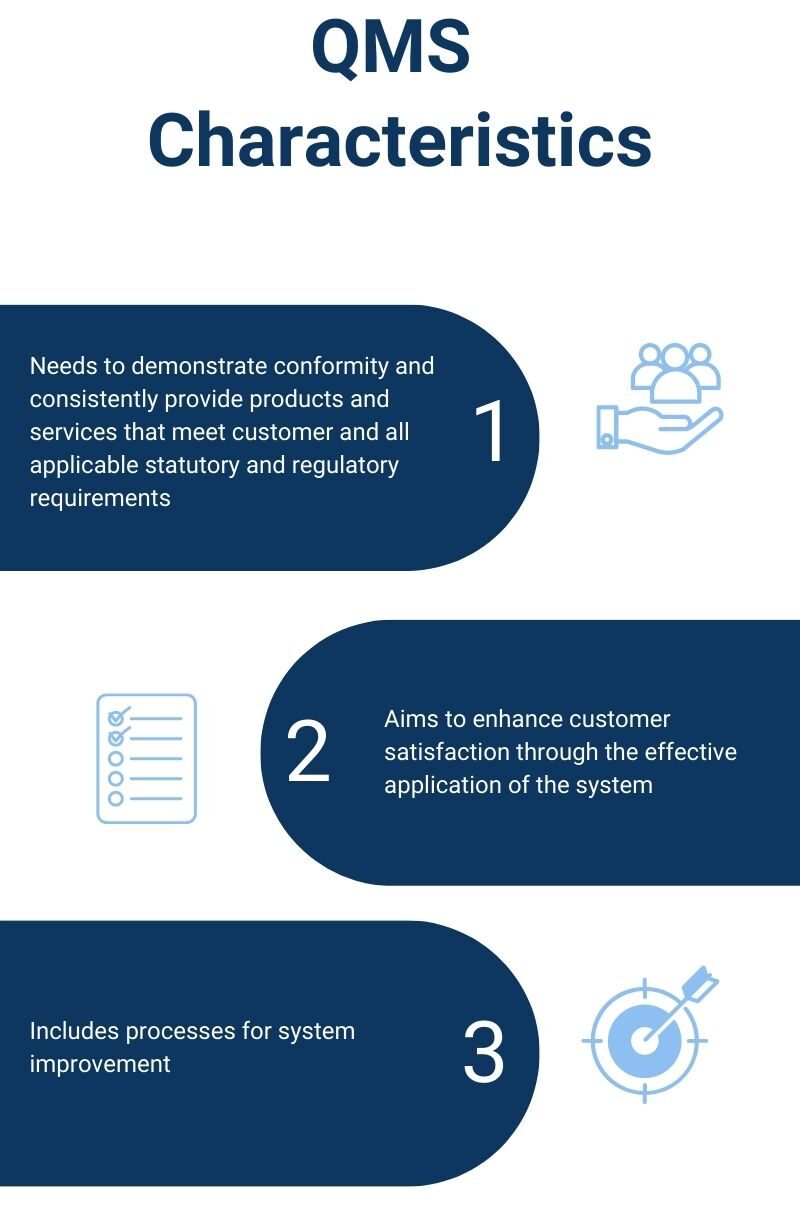
Capio Group Strategies for ISO Success
Proactive Risk Management
Capio Group performs a formal risk analysis that is most familiar to an organization’s ISO Certification goals. This places a stronger importance on processes rather than documentation alone. Clients are encouraged to align strategic business goals with standards, instead of implementing a QMS as a separate, disjointed project. A critical approach that Capio Group renders to clients is “Risk-Based Thinking”. This approach encourages:
- Analysis and Prioritization of Risks – What is acceptable or unacceptable?
- Evaluation for Effectiveness – Does the action work?
- Planning to Directly Address Risk – How can we avoid, eliminate, and mitigate risks?
- Identifying Learning Opportunities – Where can we improve next time?
- Implementing the Plan – How can we take action?
Leverage Flexible Quality / Health and Safety Management Systems
Following Capio Group’s recommendations allows an organization more flexibility in how it chooses to document its QMS. In the case of HSR and its functional partner Health & Safety, this recommendation gave them the ability to establish the documentation required to demonstrate effective planning, operation, and process control. In addition, the new Standards were disseminated throughout the HSR organization. A continual improvement framework and maintenance plan were developed for the program.
Though it is no longer required by ISO 9001:2015, the Capio Team established a Quality Plan for HSR. This plan helped determine the required documentation and how those documents would be audited. The Scope of the QMS that Capio built for the program was a vital component of the Quality Plan. The objective was to define the specifics of how far the QMS reaches and determine if there were areas to exclude from the ISO requirements, providing proper justification. The scope of the QMS covers the entire organization.
Cultural Adoption
Capio Group engages people across an organization to ensure that staff understands the Quality Policy and how their contributions relate to the larger organizational framework. This serves to highlight how employees’ work positively or negatively impacts business performance. Leadership should recognize this as a key element in continuous improvement principles by engaging all levels of employees to achieve shared business goals.
Designated ISO Leader for the Organization
Our team recommends that clients assign an ISO Leader as well as a Senior Quality Manager. Assigning dedicated key roles helps to avoid conflicting messages and provides clear leadership to all employees. Most importantly, the Leaders should be individuals with sufficient authority to implement changes regarding operational processes and functions. These Leaders, in conjunction with the entire Capio Team, are the primary teams responsible for the successful ISO 9001 and 45001 implementation and coordination. Getting full and clear support from management is absolutely essential in the success of clients obtaining certifications.
Logical Naming Conventions
The Capio Team defines a naming convention in order to maintain, organize, and track across various departments and locations. This ensures efficiency and understanding. Starting the documentation phase of certification with a standard naming convention helps leverage internal resources and scale efforts.
Implementation & Training
The Implementation phase is very critical. The Capio Team is effective in building the appropriate framework to make the implementation successful. It is imperative that employees first understand the benefits of the new ISO requirements. We assist clients with this by adjusting their way of working. Training and coaching are important to the success of the implementation.
Our focus is never to overwhelm the staff. We take smaller steps in the ISO implementation to improve its success and likelihood of being positively received by employees. One way in which this is achieved is to initiate the document control section by having stakeholders outline the requirements directly to their staff, allowing them to field questions and manage any negative feedback in a controlled environment.
Through this methodology, Capio Group works hand-in-hand with clients to train, retrain, determine FAQs, and build requirements for employees to incorporate into their work instructions. This approach increased morale towards the quality of work.
Capio Group takes it a step further by keeping records of previous experiences and education to ensure staff members are properly trained, which makes it easier to identify useful skill sets and any skill gaps. We also develop records in the system to assist with version control so that new training requirements can be implemented at the same time as new versions are distributed.
Capio Group is pleased to provide a very specialized capability, expertise, and service to clients seeking ISO Certification. We offer ongoing training, documentation, record control, and dedicated ISO Consultants among other resources as added value for the establishment and maintenance of your ISO 9001 requirements. With Capio Group’s guidance and hands-on approach, your company will have the tools to become ISO Certified and remain compliant. Contact us today for an ISO consultation.
“Our team worked collaboratively with Capio Group to guide us through the ISO 9001 certification process. Capio Group helped us achieve the certification ahead of schedule, and we were so impressed with the work that we hired them to oversee an additional certification process. We were very satisfied with Capio Group’s willingness to go above and beyond for our organization.”
Russell Burgess
Project Operations Director | HSR
